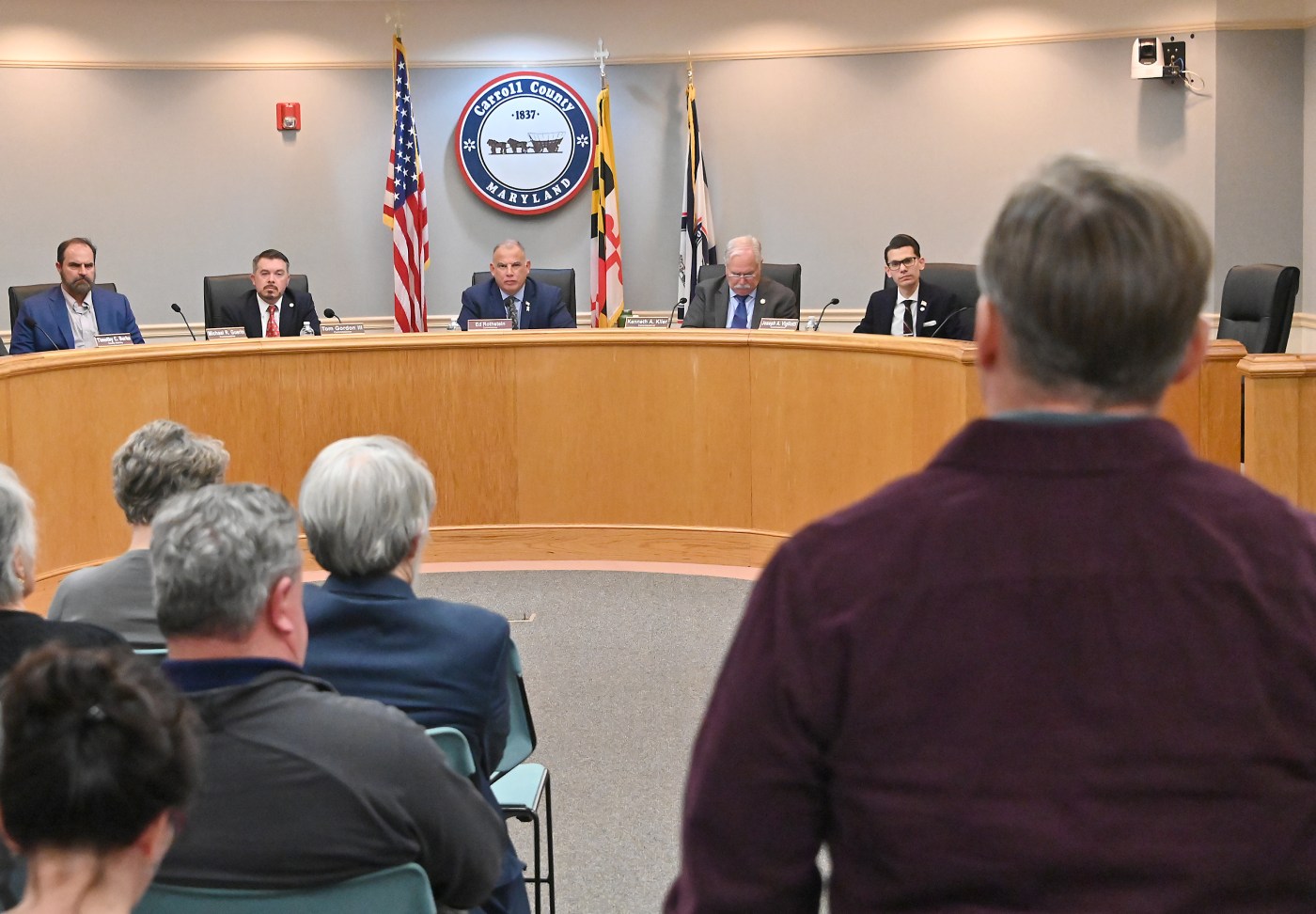
[Baltimore Sun] As residents complain of strong odors, Carroll officials pass moratorium on DAF storage
After several Carroll residents testified at a public hearing Thursday about unbearable odors, bugs, and excess dust coming into their homes from nearby farms that store byproducts from a process called dissolved air flotation, or DAF, commissioners voted unanimously for an immediate moratorium on the practice, until at least Dec. 31.
Residents testified that the odors coming from farms that store food processing remains on their land is so strong they were unable to enjoy being outside on their own property.
“There is no legitimate reason for farming and otherwise to store industrial waste in Carroll County,” said Kathy Green, a resident of District 1, which encompasses Taneytown, New Windsor, Union Bridge and the surrounding areas. “The material can be driven to the field and loaded in the spreader. Onsite storage results in relentless odor, bugs, truck traffic, and in the case of leaks or spills, harms to the environment.”
Susan Belt, a resident of Flickinger Road in Westminster, said she lives adjacent to a property where food processing remains are stored and has been dealing with a growing fly population and dust due to the remains.
“We moved here 11 years ago to our little farm,” she said. “We have beef cattle there and have loved living here in a beautiful part of Carroll County with farming all around us. About three years ago, the farmer who rents the [field] across from us, started applying the material that we have come to know as DAF.
“I still remember the first time we smelled the stench, and I complained to my husband,” she said. “We both knew it wasn’t cow or chicken manure. … It seems that the first season we were grossed out by the smell and there were days that we didn’t want to go outside. But since that first season, it seems the farmer has been using the fields as a dumping ground rather than a farming field.”
Randy Cole, Belt’s neighbor, also spoke of the smell.
“Thank you very much for listening to our problem, because it’s been an unbelievable stench,” he said. “I love Carroll County. I moved here 45 years ago. Best thing I ever did in my life. Drove to Washington, D.C. for 31 years, back and forth. Came home as happy as I can be, and now that I’ve retired it’s no longer like that.”
The commissioners could have allowed another 10 days for public comment on the proposal, but after hearing from upset residents, they voted for an immediate moratorium on the practice.
“I want to thank everyone for coming to us with what are understandable concerns,” District 1 Commissioner Joe Vigliotti said. “Thank you for helping us to better understand the situation. As I’ve mentioned in the past, I’ve smelled it on more than one occasion myself, and I cannot begin to imagine how it is living next to it.”
The Chesapeake Bay Foundation, an independent conservation organization based in Maryland, has been sounding the alarm about DAF that’s stored on many Maryland farms.
“DAF industrial sludge is the leftovers that remain after protein and other organic materials are processed in poultry, seafood, or livestock rendering plants, sometimes by skimming off solids that float to the top of treatment tanks by a technique called Dissolved Air Flotation or ‘DAF.’ Rendering companies … supply some waste to the pet food market. But the residuals — a highly liquid mix of water and remaining materials like blood, feathers, and other unused bits — create the DAF,” the foundation states on its website.
The moratorium allows the county time to update its zoning ordinances to determine if changes need to be made concerning the storage of industrial sludge. Anyone found in violation of the moratorium will be reported to the county attorney’s office. The county does not have the authority to ban or govern the spreading of food processing remains.
“The Maryland Department of Agriculture is responsible through their nutrient management plan program,” Christopher Heyn, director of the county’s Department of Planning and Land Management said. “They’re the ones who also will be given additional authority starting July 1 with a new permitting process.”
District 5 Commissioner Ed Rothstein questioned Heyn on what can be done with DAF that is already stored on agricultural land. He questioned how the county can order its removal.
“It’s about the odor and the disgust of it all,” he said. “The sooner we can get rid that the better we are.”
Heyn said he was not sure and would look into it for further discussion.
The county’s moratorium runs in conjunction with a bill that passed the Maryland General Assembly this session. The bill, which takes effect July 1, prohibits the storage and processing of food processing residuals until a use permit has been obtained from the Maryland Department of Agriculture.
The state will be charged with enforcing the provision, as well as requiring those storing and spreading the residuals to have a nutrient management plan in place along with approval and permits from the county.
“This moratorium, combined with new state legislation, puts Carroll County on the path toward a strong solution for residents and the environment,” Alan Girard, the Maryland Advocacy Director at the Chesapeake Bay Foundation said in a statement to The Carroll County Times on Thursday.
Prior to the moratorium, there were no restrictions placed on someone storing industrial sludge on their own farmland; however, if it is stored on farms by someone other than the property owner, conditional approval was required from the Carroll County Board of Appeals.
District 4 Commissioner Michael Guerin described the board’s immediate decision as good government.
“I only wish we could have done something sooner, or would have done something sooner,” he said. “You could have enjoyed or had maybe an extra spring or summer there of not being locked up in your homes.”
